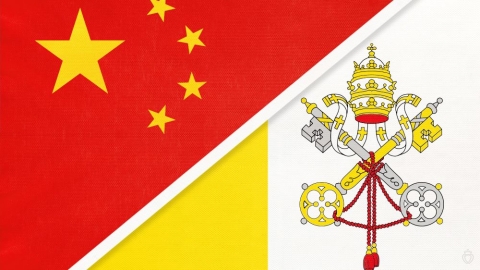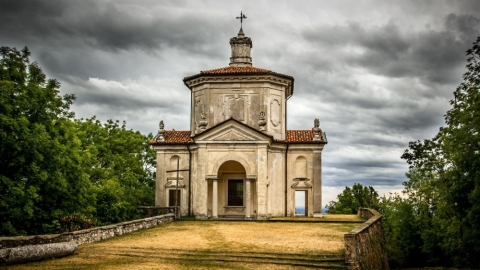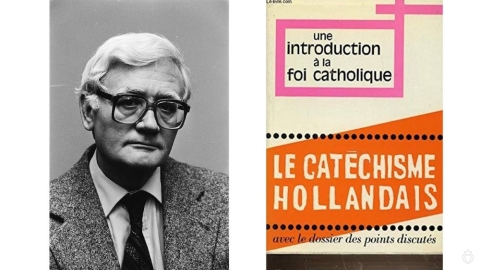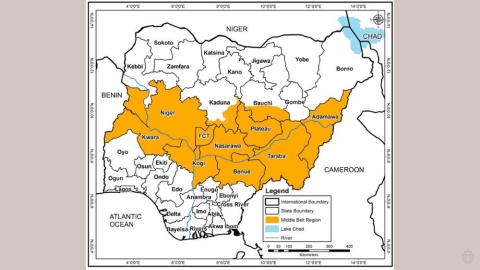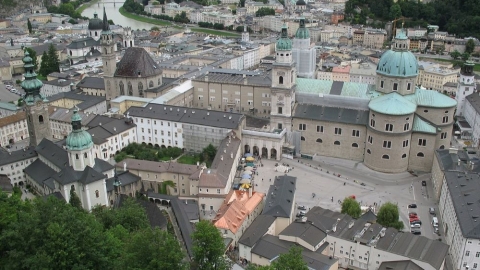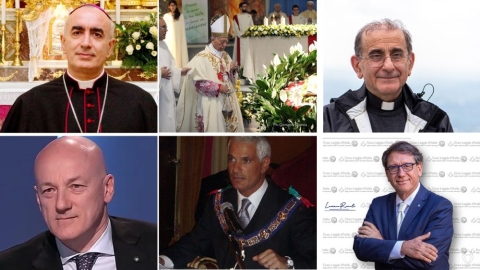Archbishop Marcel Lefebvre and the 1976 Audience with Pope Paul VI
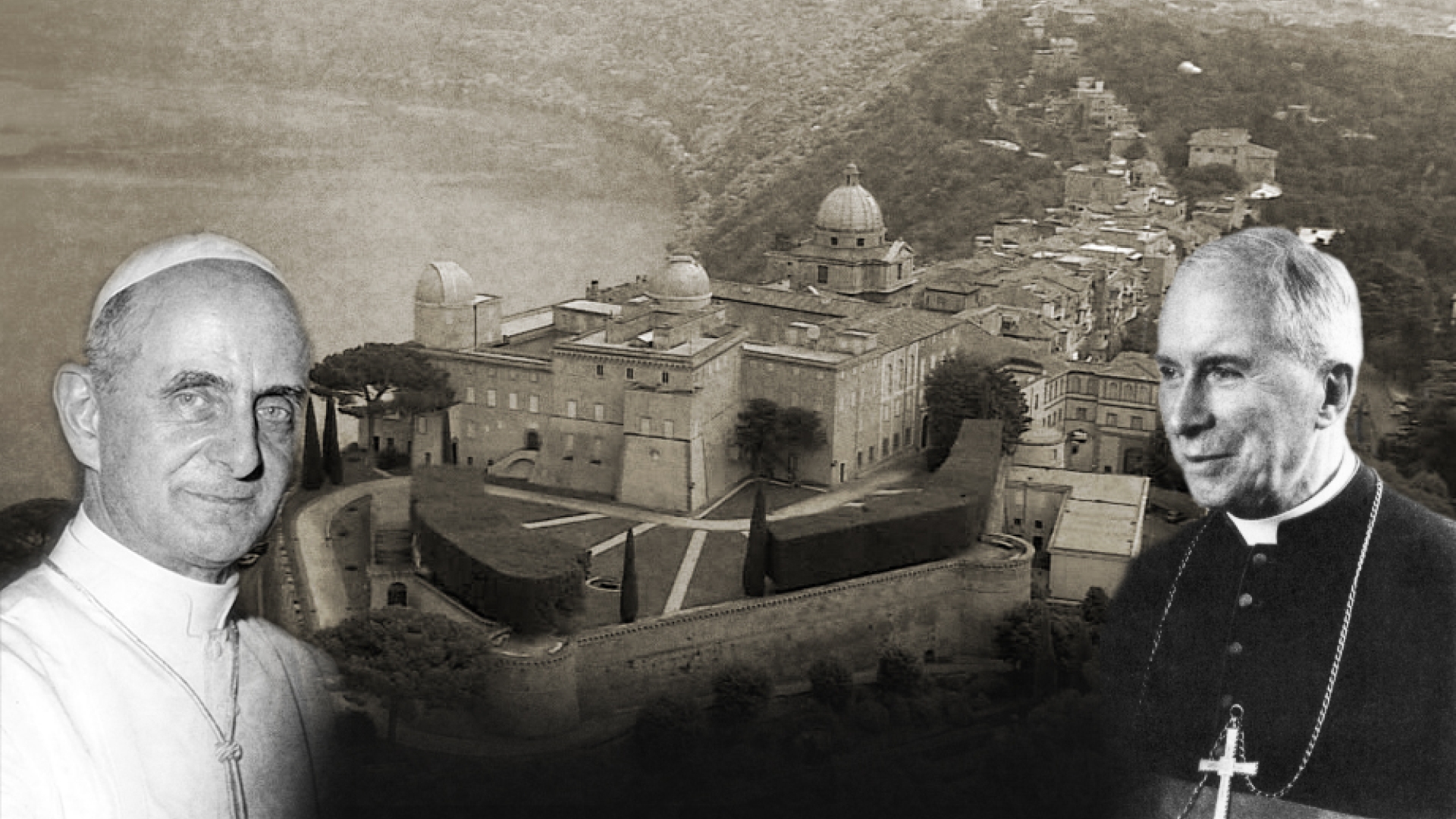
The Sources and Their Status
With the publication of Mgr. Sapienza’s book on May 16, 2018, we now have two sources that reproduce the famous meeting between Pope Paul VI and Archbishop Marcel Lefebvre on September 11, 1976, in Castel Gandolfo.
The first source to tell of the event was Archbishop Lefebvre himself, who immediately told the story to the seminarians in Econe in two conferences recorded on September 12 and 18, 1976. They served as the basis for the account given by his authorized biographer, Bishop Tissier de Mallerais.
The second source, that had remained a secret until now, is the transcription of the meeting that the Pope had drawn up “as faithfully as possible.” The words of the audience were thus put in writing by Cardinal Benelli, the substitute for the Secretariat of State; they cover eight typewritten pages.
While Archbishop Lefebvre’s two conferences were an immediate, living reaction just after the meeting and meant for his seminarians’ ears, they were not meant to give every last detail of every minute of the audience.
The verbatim account drawn up by Cardinal Benelli is a factual transcription of the private audience, meant first and foremost for the Pope and his collaborators. The author scrupulously recorded the beginning of the conversation (10:27) and its end (11:05).
The Introductory Indictment of Paul VI
The beginning of the meeting as reported by both sources, was a veritable indictment against the Society’s founder: “a storm”, the archbishop would later tell his seminarians, summing up the Pope’s reproaches: “You condemn me; I am a Modernist, a Protestant. It is intolerable! You are doing wicked work.”
Cardinal Benelli’s verbatim account reveals how strong these accusations were: “I hoped to find before me a brother, a son, a friend,” declared Paul VI. “Unfortunately,” he went on, “the position you have taken up is that of an anti-pope….It goes beyond all measure in its words, actions, and general attitude.” What is at stake here, continued the Holy Father:
...is not the person, it is the Pope, and you have judged the Pope to be unfaithful to the Faith of which he is the supreme guarantor. This may be the first time in history that this has happened. You have told the entire world that the Pope does not have the Faith, that he does not believe, that he is a Modernist, and so on! Of course, I myself must remain humble. But you, you have placed yourself in a terrible situation. You have accomplished extremely serious actions before the eyes of the world.
Archbishop Lefebvre’s Answer: A Bishop Torn by the Situation in the Church
Archbishop Lefebvre answered by admitting that, while some of his words or writings may have been inadequate, he never intended to attack the person of the Pope. But the real problem lay elsewhere: it was what had been happening in the Church since the Council. “The situation is such that we do not know what to do. With all these changes, either we risk losing the Faith, or we have to give the impression of disobeying.” The prelate added: “I would like to fall on my knees and accept everything, but I cannot go against my conscience.”
The French bishop explained his position:
It is not I who have created a movement, it is the faithful who are torn and do not accept certain situations. I am not the ‘leader of the traditionalists’. I am a bishop who, torn by what is happening, has tried to form priests as he did before the Council. I am behaving exactly as I did before the Council. I therefore cannot understand how I am all of a sudden condemned because I form priests in obedience to the healthy tradition of the Holy Church.
The Pope invited him to go on, which allowed Archbishop Lefebvre to explain:
Many priests and faithful believe that it is difficult to accept the tendencies that began after the ecumenical council Vatican II on the liturgy; religious freedom; the formation of priests; the relations between the Church and Catholic governments; the Church’s relations with Protestants. They do not understand how all these things that are being promoted can be in keeping with the healthy Tradition of the Church. I insist, I am not the only one who thinks this. Groups have formed, and they urge me not to abandon them…
No matter the disputes and calumnies, sometimes inflamed by the media, Archbishop Lefebvre always returned to the painful situation he was in, and that was only the consequence of the reforms undertaken in the name of Vatican II. And these were the very reforms Pope Paul VI demanded that he accept, as he had told his cardinals four months earlier. That was the heart of the matter.
For behind these reforms, it was the Faith that was at stake. The report from the September 11 audience explicitly mentions: “I do not know what to do,” explained the former archbishop of Tulle, distraught.
I seek to form priests according to the Faith and in the Faith. I suffer terribly at the sight of other seminaries; there are unimaginable situations. Religious faithful to their habits are condemned and despised by their bishop, while those who live a secular life and behave like people of the world are accepted.
A Dialogue on Deaf Ears
The Pope responded by claiming to work obstinately to eliminate “certain abuses that are not in keeping with the currently effective law of the Church that is that of the Council and of Tradition.” He reproached Archbishop Lefebvre for not making an effort to see and understand the Pope’s words and deeds “to ensure the Church’s fidelity to the past while responding to present and future needs.” For, continued the Holy Father:
We are the first to regret these excesses. We are the first and most determined to resolve them. But the remedy cannot lie in defying the authority of the Church. I have written this to you several times, but you have paid no heed.
Archbishop Lefebvre tried to build on this idea by illustrating the concrete difficulty that motivated his defiant reaction and his fight to maintain the Faith. He broached the subject of religious freedom, the most important novelty introduced by Vatican Council II: “What we read in the conciliar document goes against everything your predecessors said.”
But Paul VI did not wish to enter into the details. He answered that this subject could not be treated in an audience; he took note, however, of his interlocutor’s perplexity, but added, “What worries me is not this perplexity, it is your attitude towards the Council.”
Once again, the Pope did not want to hear about a doctrinal problem that involves the Faith and its public profession in society. He preferred to focus on what he considered to be the rebellious and disobliging attitude of Archbishop Lefebvre. Who, after all, was disobeying an ecumenical Council “which has no less authority, which in certain respects is even more important than that of Nicaea,” as Paul VI had written to him on June 29, 1975.
The dialogue that followed is most enlightening:
Archbishop Lefebvre: “I am not against the Council, but against some of its acts.”
Paul VI: “If you are not against the Council, you must adhere to it, to all of its documents.”
Archbishop Lefebvre: “Then we have to choose between what the Council says and what your predecessors said.”
Paul VI: “Like I said, I have taken note of your perplexity.”
There was clearly no way to reach an agreement, and it was truly a dialogue of the deaf between a prelate trying to explain the serious motives for his conduct and the Holy Father reproaching him for this conduct without wanting to enter into an in-depth discussion. This was doubtless the reason Archbishop Lefebvre placed himself on practical grounds.
A Request and an Offer to Submit
The bishop of Econe looked for a back door, to get at least an advantage for the traditional Catholics torn by the situation in the Church out of this audience with the Vicar of Christ:
I have a request for you. Would it not be possible to order bishops to grant in churches a chapel where people can come pray as before the Council? Today, everyone is allowed everything; why not allow us something, too?
Paul VI stiffened: “We are a community. We cannot allow independence in behavior from the community’s different components.”
Archbishop Lefebvre insisted, using an ad hominem argument:
The Council admits pluralism. We ask that this principle be applied to us as well. If Your Holiness did that, everything would be resolved. There would be an increase in vocations. Those aspiring to the priesthood wish to be formed to true piety. Your Holiness has in your hands the solution to the problem that troubles so many Catholics today. As for me, I am ready for anything for the good of the Church. Someone from the Sacred Congregation for Religious can watch over my seminary; I will give no more conferences; I will stay in my seminary; I promise that I will not leave it again; agreements could be reached with different bishops to place the seminarians at the service of their respective dioceses; if you wish, a Committee for the Seminary could be named, with the approval of Bishop Adam.1
The bishop’s conclusion summed up his remarks: “Personally, I am ready to submit. But we have to find a solution that will satisfy the authority of the Pope, the bishops, and also the faithful who are suffering.”
Archbishop Lefebvre was clearly ready to obey. He even went very far in his attempt to resolve the difficulties, ready to step aside if need be so that Tradition could recover its rights in churches and so the situation of his seminary could be regularized. But Pope Paul VI clearly wanted total submission, without having to make a gesture towards traditional Catholics: an unconditional capitulation.
The Pope then exhorted Archbishop Lefebvre simply to get back into line, repeating the words of Bishop Adam, who, in the name of the Swiss Bishops’ Conference, had told him he could no longer tolerate the French bishop’s activity: “How can you consider yourself in communion with Us when you take up a position against Us, in the eyes of the world, to accuse me of unfaithfulness and of wanting to destroy the Church?”
Pope Pius VI drove the nail home: “You have said it and you have written it. I am a Modernist pope. By implementing an ecumenical Council, I am betraying the Church. You understand that if this was the case, I should resign; and invite you to take my place and direct the Church!”
In the face of the storm that was breaking anew, Archbishop Lefebvre sought to argue with a sober fact: “The crisis of the Church is there.” “We suffer deeply from it,” interrupted Paul VI. “You have helped make it worse, with your manifest disobedience, with your open defiance of the Pope.”
The meeting was once again growing tense.
Serving the Church in Spite of All
Archbishop Lefebvre complained that he was not being judged as he should be. “Canon law judges you,” retorted the Pope immediately. “Do you realize the scandal and the harm you have done to the Church? Are you not aware of it? Would you be capable of standing before God like this? Examine your conscience and ask yourself before God what you should do.”
According to the report, Archbishop Lefebvre answered by repeating his request for a gesture in favor of Traditional Catholics. He insisted upon the benefits that would come from doing what had been done in the past; “everything would work out”. “As I said, I am not the leader of a movement. I am ready to stay locked up in my seminary forever.”
And he spoke of the excellent work being done there, with the formation of true priestly vocations:
People contact my priests and are edified. They are young men with a sense of the Church; they are respected in the streets, in the subways, everywhere. Other priests no longer wear the ecclesiastical garb, they no longer hear confessions, they no longer preach. People have chosen: these are the priests we want.2
Archbishop Lefebvre tried one last time to bring up the crisis causing all the evils from which the Church was suffering. Since the pluralism argument had failed, he explained to the Pope how the liturgy had become an object of unbridled creativity: “Do you know that in France there are at least fourteen different Canons used for the Eucharist prayer?”
The Pope immediately responded: “No, not fourteen, about a hundred…!” He wished to show the archbishop that he was fully aware of the situation and that he was taking action:
there are abuses, but the Council is doing much good. I do not wish to justify everything; like I said, I am seeking to correct what needs correcting. But we also have to admit that there are signs, thanks to the Council, of a strong spiritual renewal among the youth; an increase in the sense of responsibility among the faithful, the priests, the bishops.
Archbishop Lefebvre was most willing to admit that there could, obviously, be positive aspects: “I do not say that everything is negative. I, too, would like to collaborate in building the Church.”
“But it is certainly not in this way that you will help to build the Church,” replied Paul VI. “But do you realize what you are doing? Are you aware that you are going directly against the Church, the Pope, the Council? How can you claim the right to judge the Council? A Council, after all, whose acts for the most part were signed by you.” Upon which, the sovereign pontiff began to wrap up the audience.
The End of the Audience
Paul VI said he humbly accepted the French bishop’s reproaches and his severity towards him. He explained that as he neared the end of his life, he wished to think about it and to consult the dicasteries. He added that he had greatly esteemed Archbishop Lefebvre: “I have recognized your merits, and at the Council we agreed on many things…” “That is true,” admitted the archbishop.
As it should be, the last one to speak was the Holy Father: “You understand that I cannot allow you to make yourself guilty of a schism, even for reasons that you consider ‘personal’. Make a public declaration in which you retract your recent declarations and your behavior, that the entire world has understood as acts not meant to build the Church but to divide and harm her.” And he concluded, before praying a Pater Noster, an Ave Maria and a Veni Sancte Spiritus together: “We must find unity in prayer and reflection.”
Clarifications and Differences
Cardinal Benelli’s report corroborates Archbishop Lefebvre’s account for the major topics, but there are differences between the two.
Some of them are but details. Archbishop Lefebvre, who had just visited Fanjeaux, where the teaching Dominican Sisters of the Holy Name of Jesus were being subjected to an all-out persecution by the local bishop, was certainly speaking of them when he mentioned the difference in the treatment given to those who were persecuted for their fidelity to the religious life and those who were encouraged in their most scandalous desertions:
The nuns who dress in lay clothes are accepted, but the sisters that I saw two days ago are reduced to the lay state and the bishop has been five times to ask them to abandon their habits. Similarly, priests who are faithful to the catechism of all time and to the Mass of their ordination are kicked out onto the streets; and those who are no longer like priests are accepted.
According to the former archbishop, two of the Council’s documents that he had refused to sign were also explicitly mentioned: Dignitatis Humanae and Gaudium et Spes. When the Pope asked why he refused to recognize the doctrine of religious liberty as promulgated by the Council, Archbishop Lefebvre quoted several Roman pontiffs: “It contains passages that are word for word contrary to what was taught by Gregory XVI, and Pius IX…” “Let’s leave that aside!” interrupted the Pope. “We are not here to discuss theology!” and Archbishop Lefebvre thought to himself: “This is unbelievable!”3
Lastly, Cardinal Benelli’s report makes no mention of the “oath against the Pope” that Paul VI sharply reproached Archbishop Lefebvre for having his seminarians in Econe sign. And yet here is the account given by Archbishop Lefebvre the day after the audience, and that he told as part of the conversation:
Paul VI: “You have no right to oppose the Council; you are a scandal for the Church, you destroy the Church. It is horrible, you raise up Christians against the Pope and against the Council. Do you feel nothing in your conscience that condemns you?”
Archbishop Lefebvre: “Nothing at all.”
Paul VI: “You are irresponsible.”
Archbishop Lefebvre: “I know I am continuing the Church. I train good priests.”
Paul VI: “That is not true, you make priests against the Pope. You make them sign an oath against the Pope.”
Archbishop Lefebvre “I do what?” (On hearing this incredible allegation, I put my head in my hands.) I can still see myself doing this and saying: “Most Holy Father, how can you say such a thing to me? I have them sign an oath against the Pope!? Can you show me a copy of this ‘oath’?” (He was amazed. [Paul VI] was so convinced of the truth of what Cardinal Villot —probably—had told him.)
Paul VI: “You condemn the Pope! What orders will you give me? What must I do? Hand in my resignation and then you can take my place?”
Archbishop Lefebvre: “Ah! (I put my head in my hands) Most Holy Father, don’t say things like that. No, no, no! Let me carry on. You have the solution in your hands. You only need say one thing to the bishops: ‘Welcome with understanding these groups of faithful who hold to Tradition, the Mass, the sacraments, and the catechism of all time; give them places to worship.’ These groups will be the Church, you will find vocations among them and they will be the best in the Church. The bishops will see it. Leave me my seminary. Let me carry out this experiment of Tradition.”4
Conclusion: Lessons for Our Times
The dramatic days of the “Hot Summer of 1976” are a page in history that remain very topical. Paul VI took as a personal insult the serious accusations Archbishop Lefebvre made against Vatican Council II and the breath of revolution that swept through after the Council.
The liturgical reform that sought to mix the Catholic Mass with the Protestant Cenacle, ecumenism left and right, the multiplication of the most unlikely experiments – except that of Tradition – the adaptation of priestly life and the religious orders to the world that provoked a serious crisis in numbers and vocations, the most unorthodox doctrines circulating freely, the abuses in every domain: the general situation in the Church had quickly become catastrophic.
Archbishop Lefebvre’s reaction, his work of priestly formation faithful to what the Church had always done, his intention to serve her by preparing for the future and building upon the rock of Tradition, and his vigorous denunciation of errors were clearly not understood.
Revealing and truly paradoxical is the fact that it was Archbishop Lefebvre who suggested dialogue and sought for solutions while Paul VI, the artisan of dialogue left and right, demanded the strictest submission and obedience.
Although it does not appear in Cardinal Benelli’s transcript, the episode of the oath Paul VI was convinced Archbishop Lefebvre had his seminarians make against him also says much. “Neither this oath,” comments Bishop Tissier de Mallerais, “nor anything like it ever existed. Ever! So the Archbishop had been calumniated in the Pope’s hearing, which would explain Paul VI’s sense of being personally offended.” This could also explain why he thought he was dealing with a rebellious and seditious bishop driven by ambition and vindictiveness, who would get back into line if he were scolded. The meeting as reported shows that his anger cooled in the end, and that he could see that everything cannot be resolved with an act of obedience when the Faith is at stake. Must we not obey God rather than men? (Acts 5:29)
In retrospect, Pope Montini’s claim to forbid the Mass of St. Pius V, as expressed during the 1976 Consistory, did not last long. In 2007, Pope Benedict XVI even declared that the traditional rite of the Roman Missal had never been abrogated.
Another aspect worth noting in this episode is that Paul VI, like his successors, speaks only of Vatican Council II and its works and pomps. As if the Church did not have two thousand years of wisdom, doctrine, and magisterial teachings to teach and transmit. That was Archbishop Lefebvre’s sincere proposition to the Successor of Peter: to try the experiment of Tradition loyally, using the Society to build the Church. Not to stifle it or marry it with the Revolution, but to show the authorities – the bishops throughout the world – that it is the solution to the crisis in the Church.
As for the audience, it had no results. The Pope clearly expected Archbishop Lefebvre to make a public declaration retracting his position, and the bishop of Econe hoped for a gesture towards the Catholics torn between apparent disobedience to the Pope and their duty to remain faithful to the Faith, the Mass, and the sacraments.
An Audience with No Results
The tensions lightened. On September 14, 1976, on French television, Archbishop Lefebvre voiced his hope:
A new climate has been established, the ice is broken… It was a conversation, the first negotiation so to speak. We hope for a green light, to be approved like all the experiments being made right now….the Pope told me he would consult with the Congregations on this. Paul VI led me to believe there would be more to this dialogue, but not for a couple months. After all the trials that have separated us, we are not going to find a solution in forty-eight hours… For us, there is no question of schism, we are continuing the Church… Insofar as the Pope is still in union with his predecessors, we are in perfect union. When we start entering into novelties, then we have to examine whether these changes are truly in keeping with Tradition.
On September 16, the Superior of the Society of St. Pius X wrote to the Holy Father to thank him for granting him an audience:
we are united by a point in common – the ardent desire to see the end of all the abuses which are disfiguring the Church. How I long to collaborate in that salutary work with Your Holiness and under your authority, so that the Church may recover her true countenance.
On October 11, Paul VI wrote Archbishop Lefebvre a long letter, reproaching him for his “rebellion”. Taking note of the French bishop’s desire to work for the Church, he scolded him severely for his unchanging attitude:
You speak as if you have forgotten your scandalous words and gesture against ecclesial communion – words and gestures that you have never retracted. You do not manifest repentance, even for the cause of your suspension a divinis. You do not explicitly express your acceptance of the authority of the Second Vatican Council and of the Holy See – and this constitutes the basis of your problem – and you continue in those personal works of yours which the legitimate Authority has expressly ordered you to suspend.
The main lines had been laid out for many years to come. While Archbishop Lefebvre persisted in order to save the Mass and fight for the Faith and maintain the formation of and save the Catholic priesthood, the authority responded by demanding “a truly ecclesial attitude of obedience without reserves or conditions.” Unity, yes, but in the Truth.
Fr. Christian Thouvenot
Sources: Sapienza / Vatican Insider / Clovis / FSSPX-MG / FSSPX.News – 6/7/2018
